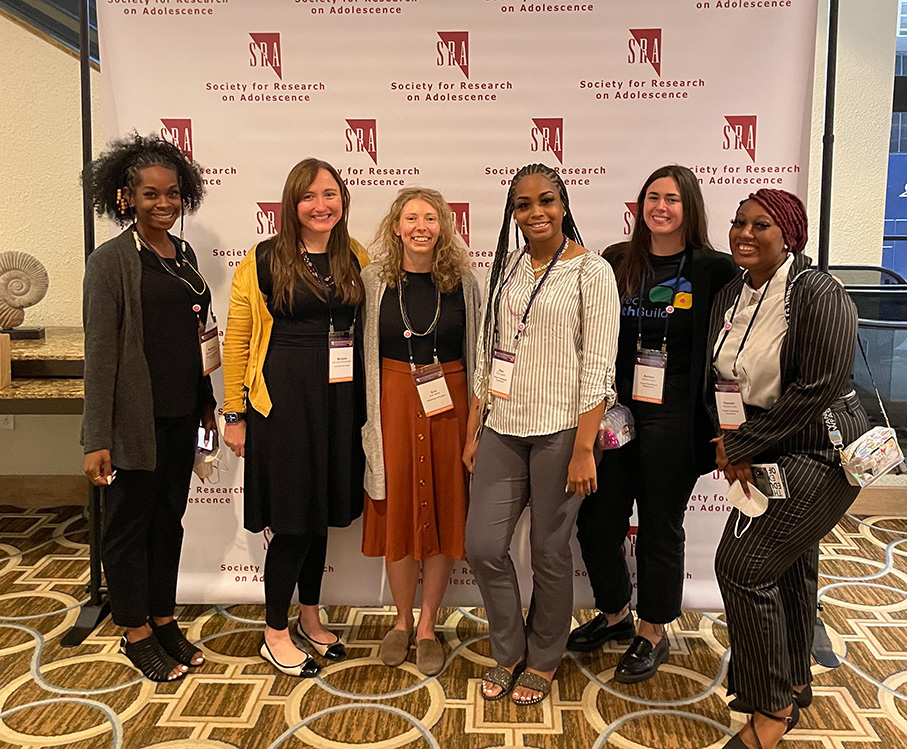Parental incarceration is considered an adverse childhood experience (ACE), and research shows that it can have a lasting negative impact on children’s behavior, mental health and educational outcomes. According to the National Institute of Corrections, 7% of all children in the U.S. have had a parent in jail or prison at some time in their lives.
The vast majority of research on parental incarceration involves collecting data from adults about their perceptions of young people’s experiences. But over the past year, University of Florida social scientists have partnered with two local youth organizations (Project YouthBuild and River Phoenix Center for PeaceBuilding) in Gainesville, Florida, to flip that model.
Through an approach called youth participatory action research, or YPAR, the team recruited and trained three young adults, Shaneah Cobb, Zion Latson and Mykala Wimbish, to conduct their own research on family member incarceration, something all three had personally experienced growing up.
“YPAR is about empowering youth to answer questions that are important to them and that gives them the tools to take action and advocate for themselves,” explained Michelle Abraczinskas, an assistant professor in the UF/IFAS department of family, youth, and community sciences (FYCS) who led the project as principal investigator. The co-principal investigator was Britni Adams from the University of Nevada-Reno. Erin Vines, a doctoral student in the FYCS department and Abraczinskas’ advisee, was a lead graduate research assistant on the project.
Through focus groups and surveys of their peers, Cobb, Latson and Wimbish heard directly from other young people with experiences of parental incarceration about what would have helped them and their families the most during that time. These recommendations include
- reducing financial burdens, such as the cost of phone calls with incarcerated parents
- providing resources to help family members talk to children about a parent’s incarceration
- establishing informal and youth-led support groups where youth can share their experiences
- receiving support from teachers and schools in ways that do not single out children of incarcerated parents
In Spring 2022, Cobb, Latson, Wimbish, Vines and Abraczinskas traveled to New Orleans to the Society for Research on Adolescence biennial meeting. The young adults presented in an oral symposium with about 75 attendees. There they shared their experiences with the project, what kept them engaged, and their perspectives on the support needs of youth who have experienced parental incarceration.

Reflecting on the conference, Latson said, “It made me feel important, like my opinion mattered.” In October, the team published an article in the Journal of Participatory Research Methods.
“I’m hopeful that our findings can inform better ways to support youth with incarcerated parents in our community,” Vines said. In the near future, the young adult researchers also plan to give presentations to local Gainesville-area stakeholders such as City of Gainesville leadership and the Alachua County Sheriff’s Office.
When Latson was asked if she though that people will listen to what she had to say about children of incarcerated parents, she said, “Yes, they will listen, because I am somebody to listen to. My voice matters.”
The three young adult researchers graduated from Project YouthBuild, an educational, occupational and leadership program in Gainesville that helps young people, many of whom have experienced parental incarceration, complete high school and access other support. Another community partner, the River Phoenix Center for Peacebuilding, provided youth with interpersonal and intrapersonal skills training as well as overhead and operational support.
The YPAR project is funded through a contract with the Interagency Working Group on Youth Programs and the Office of Juvenile Justice and Delinquency Prevention, via the American Institutes for Research.
The YPAR project is still conducting focus groups and surveys. If you’re interested in participating in a focus group and survey, click here to find out if you qualify, learn more about the study and sign up.
Top photo: Getty Images
 1
1
